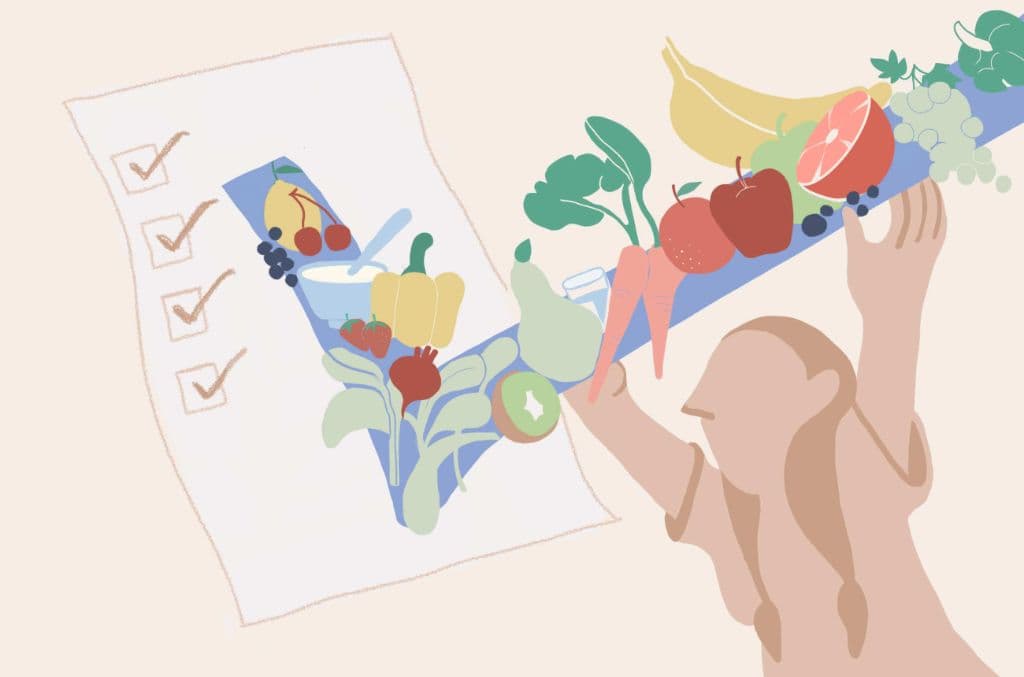Breastfeeding Nutrition: The Whys & Hows of Nutrition for Nursing Mothers
"Mother's milk, time-tested for millions of years, is the best nutrient for babies because it is nature's perfect food." ~ Robert S. Mendelsohn
Breast milk is one of the most important gifts a mother can give to her child. It is not an exaggeration why breastmilk is termed as 'Liquid Gold' and considered Gold Standard for newborn and infant feeding. The positive effects of breastfeeding on infants from the nutritional, physiological, and developmental viewpoints have been confirmed by scientific studies worldwide.
Why a Healthy Breastfeeding Diet?
While many breastfeeding diets revolve around providing essential nutrients to the infant, a good diet is equally necessary to maintain the mother's health. The focus of a healthy breastfeeding diet should not be on taking extra calories but increasing nutrition diversity. A healthy diet helps in managing postpartum depression, related mood swings, and weight.
Breast milk approximately comprises 87 percent water, 3.8 percent fat, 1.0 percent protein, and 7 percent carbohydrate and provides 60 to 75 kcal in 100ml. Interestingly, human milk contains only 35% of casein (out of total protein) and much more bioactive components that make it easily digestible and much more nutritious! However, exact breast milk composition may vary with each feeding and, notably, with diet.
Researches have shown that breast milk can provide all the essential macro and micronutrients to the baby (except vitamin D, the intake of which should be 400 IU/day for all breastfed infants). Besides nutrition, breastmilk contains bioactive components and is the most crucial source of commensal bacteria for the baby's gut health.

What can be called a Healthy Diet?
The good news is that you can eat anything and everything while breastfeeding! It has also been found that breastmilk plays a critical role in developing the baby's food preferences later. Hence, there is no particular food that you should avoid while nursing (apart from your usual allergens). It would be strongly advised to stay away from alcohol and smoking. Caffeine intake needs to be limited to less than 200 mg of caffeine a day- that’s roughly the equivalent of 2 cups of strong coffee.
Ideally, a healthy diet should contain a balance of carbs, proteins, fats, and minerals.
However, a few specific nutrients need to be included in regular meals.
- Choline: Choline is one of the most essential yet understated nutrients whose presence is crucial for cognitive development and reducing inflammations. Choline intake should be consciously increased during pregnancy and continued while nursing (around 450-550 mg/day). Some foods that will help you get your choline - Choline is abundant in non-vegetarian foods like eggs, shellfish, and meat. Whole wheat (including wheat germ), soybean, peanuts, butter, peanut butter, cauliflower, and lettuce are some of the choline's abundant sources in vegetarian diets.
- Iron: In our body, iron functions in both oxygen transport and energy production. However, it exhibits a unique 'U-shaped nutrient-health relationship' that means its inadequacy in the body can cause anemia, resulting in fatigue, loss of appetite, irritability, and mood swings. Moreover, excessive concentration may create toxicity. Foods such as eggs, meat, peanuts, spinach, beetroot, nuts, and seeds are rich in iron and consumed during the nursing period.
- Folic Acid or Folate: Folates or Vitamin B9 (dietarily supplemented as Folic Acid) are essential in the breastfeeding diet for babies’ cognitive development and maintaining the mother’s immunity. Foods such as Eggs (yes, again!), beans (kidney and adzuki), legumes, and green leafy veggies are rich dietary folate sources to fulfill your breastfeeding needs (around 400 mcg/day).
- Omega-3 Fatty Acids: Omega-3 Fatty Acids come under the category of Essential Fatty Acids. They serve as carriers for absorbing fat-soluble vitamins A, D, E, and K and carotenoids. Research says that omega-3 is necessary for brain and visual development. Apart from this, omega 3 fatty acids have shown a protective effect in cancer, heart diseases, and, more recently, various mental illnesses, including depression, ADHD, and dementia. Good sources: Fish and seafood are the prominent sources of dietary omega-3. Eggs can also provide a significant amount. For vegetarians, consumption of seeds and nuts can give omega-3. Major sources are flaxseed, sesame, walnut, almond, peanut, and coconut.
- Vitamin D: Vitamin D is naturally found only in a few foods, like fatty fish, fish liver oils, and dried seaweed and algae. The body can also produce it from sunlight exposure, though it depends on many factors, like geography and skin color. In the Indian context, a 15-minute daily exposure to sunlight between 11 AM to 3 PM is good enough to maintain the body's vitamin D levels.
Too confusing?? We got you covered!!
It is fair enough to find the whole list of nutrients and foods a bit overwhelming. Here is a small summary of a few food items you can include in your daily diet (while not forgetting a daily 15-min late afternoon walk and iodized salt intake).
- Fruits & Vegetables: Fresh fruits and vegetables (especially tomatoes, berries, leafy veggies) are ideal snacks after pregnancy and breastfeeding. They not just provide essential vitamins and minerals but have lots of antioxidants and dietary fiber that help in weight management and are known as mood stabilizers.
- Eggs: If you are okay eating eggs (and certainly do not have any previous allergies or medical conditions), eggs can be a complete food during the nursing period, providing balanced carbs, protein, and other nutrients. However, it is advised to consume them moderately and balanced with regular meals.
- Peanuts: Peanuts are a great go-to snack, especially for vegetarian mothers wanting to get a balanced diet during nursing. Peanuts are rich in protein, iron, choline, and other minerals and can blend easily with any kind of diet. You can roast them and mix them with chopped veggies to have a healthy breakfast or evening snack.
- Fish: If organically cultivated fish is available for consumption, fish can be an excellent source of Omega-3 fatty acids, Vitamin E, and D. Preferably, fish should be taken in steamed or grilled form.
Furthermore, Iodine is also one of the essential minerals to be taken during pregnancy and breastfeeding. While intake of iodized salt is mandatory, dried seaweed, cod, and milk can also fulfill the body's iodine requirements.
Galactagogues or Milk Increasing Substances
Galactagogues are known to promote breast milk production. They include foods and herbs that can be deliciously amalgamated into regular diets through herbal tea, drinks, and spices. Some of the most common galactagogues (you can easily find them in your kitchens) are :
- garlic
- fenugreek seeds and leaves
- fennel seeds
- garden cress
- drumstick leaves
- carom seeds
Whenever you are consuming substances that increase milk production keep in mind the following -
- When in doubt, always start slow.
- Always consult your healthcare provider before starting any supplements as ingredients can often get passed through breast milk.
- Ensure that you don’t consume herbal teas more than suggested by your provider
- The flavor and taste of the milk you produce could be affected by the food you consume.
Considering Supplements?
Although a healthy and balanced diet should be the primary aim of breastfeeding nutrition, it is perfectly safe and okay to take supplements to replenish your mineral and vitamin stores. Your doctor may recommend some supplements whilst being discharged from the hospital. Try and be as regular in taking them as you can.
There can be multiple reasons when a mother could not follow up with a healthy diet routine; hence, supplements can be an option to maintain the body's nutrition balance. Vitamin A, D, B-12, omega-3 oils, zinc, and calcium are some of the nutrients that the body could not produce on its own and essentially be taken through diets to maintain the level.
Essentially, if you are entirely vegetarian or vegan or could not take certain foods due to medical conditions or allergies, supplements for these nutrients are recommended.
Last but not least!
Breastfeeding comes with a lot of liquid requirements in the body. Hence, it is necessary to drink at least 2-3 liters of water every day. Moreover, while many women develop a sweet tooth during pregnancy, try to eat healthy to the best extent you can. Opting for natural sweet substances that are equally nutritious is a great alternative. Consuming foods such as dates and fresh fruits will also build your nutrient store.
Being a new mother is hard work ! Take time to appreciate your body for everything it has done for you and seek all the guidance you need to take care of your mental and physical health.
Disclaimer: This information is educational and should not be construed as medical advice. Please consult your doctor before making any dietary changes or adding supplements.
Proactive For Her is a digital clinic for women, offering accessible, personalised, and confidential healthcare solutions. We offer out-patient care, diagnostic services and programs for various health concerns of Indian women, across their lifetime - from puberty to pregnancy to menopause.

